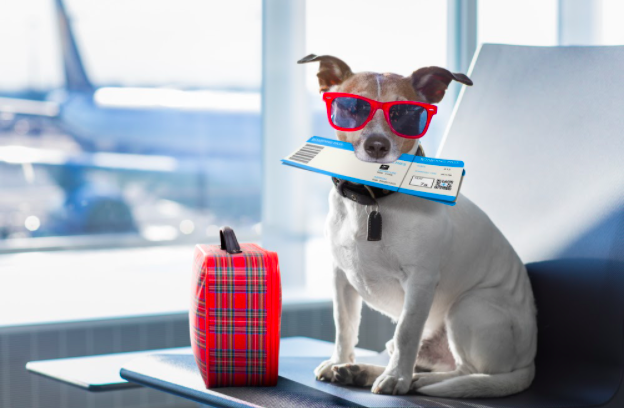October 27, 2021

How To Prepare Your New Pet For Travel
Interstate or international travel with a pet can be a tricky and somewhat overwhelming experience. The last thing you want is for something to go wrong or for your pet to endure more stress than is necessary. Doing your homework and preparing both yourself and your pet for travel is the best way to ensure that your fluffy friend’s journey goes as smoothly as possible. Today, we look at everything you need to check off the list before travelling with a pet, so sit back, relax and read on to find out more!
-
Book An Appointment At Your Local Vet
Without a doubt, the first thing any pet owner should be doing before making travel plans is to book an appointment at your local vet. Your vet will be able to assess your pet’s health and be able to advise as to whether pet travel is a viable or recommended option for you. Your pet should always be at optimal health prior to travel, so be sure to not just get a full body examination but to also discuss your plans with your vet.
Your vet will be able to administer all the necessary vaccinations that your pet will need. If your pet hasn’t already been microchipped, it is imperative that you get this done sooner rather than later. If time isn’t on your side, you can always book an appointment with an emergency vet in Ringwood. It is also important to note that many countries insist on both internal and external parasite treatment before travelling, so be sure to speak to your vet about the best treatment options for your pet. Remember – be sure to keep all the paperwork you receive from the vet clinic as you will be required to show them to your airline!
-
Check Up On Airline Policies
Every airline’s pet policy is different, so be sure to do your due diligence before you even think of booking tickets for travel. Some airlines only allow dogs and cats that are small enough to fit into a carrier that you can stow under your seat. Other airlines allow a wider variety of animals including birds, rabbits, and guinea pigs. Finally, some airlines will transport animals in the plane’s cargo hold depending on weather and capacity.
-
Secure An Airline-Approved Carrier
When it comes to travelling with your pet, an airline-approved carrier is an absolute must. It is important that the carrier or crate you use is airline-approved and measures up with IATA requirements. Any crate that doesn’t meet these expectations will not be allowed on a plane. We also highly recommend double checking your specific airline carry-on dimensions with any carrier you consider purchasing.
-
Acquaint Your Pet With Its New Carrier
Pets are highly prone to stress when they experience a change in environment, which is why it is always advised that you acquaint your pet with its new carrier weeks, if not months before your planned travel date. This can be as simple as taking your pet for car rides in their new crate and rewarding them after each adventure. You can also leave the crate around your house so that your pet can familiarise itself with it by embedding it with their personal scent. Taking these extra measures will make all the difference and will help make travel a lot less stressful on your fur-baby.
-
Get The Right Supplies
As tempting as it may be to leave a sentimental item with your pet in its crate, we highly advise against doing so. In some situations, airlines or customs officials may discard these items so be sure to do your research when it comes to what you can and cannot include in your pet’s carrier. As a general rule of thumb, it is recommended that you line your carrier with a familiar t-shirt or blanket that will be able to provide comfort to your pet.
Your pet should also travel without a collar or harness as this may prove to be a choking hazard. Instead, you may attach a collar or lead to your crate which you can put on your pet after disembarking. Make sure your pet’s name tag is attached to any collar, harness or lead you provide for identification purposes.
-
Prepping Your Pet For The Flight
Last but not least, be sure to keep your pet well hydrated for at least 48 hours prior to travel, and be sure to administer any necessary medication prior to flying. You should also leave a small packet of kibble if your pet is particularly fussy. Water will be provided throughout the duration of your flight, so you can rest easy knowing that your little one is well cared for and as comfortable as possible.
Preparing your pet for air travel is incredibly important and will ensure that your pet has a comfortable and relatively stress free travel experience. If you are unsure of anything, be sure to talk to your local vet who will be able to give you helpful advice and suggestions. Safe travels!